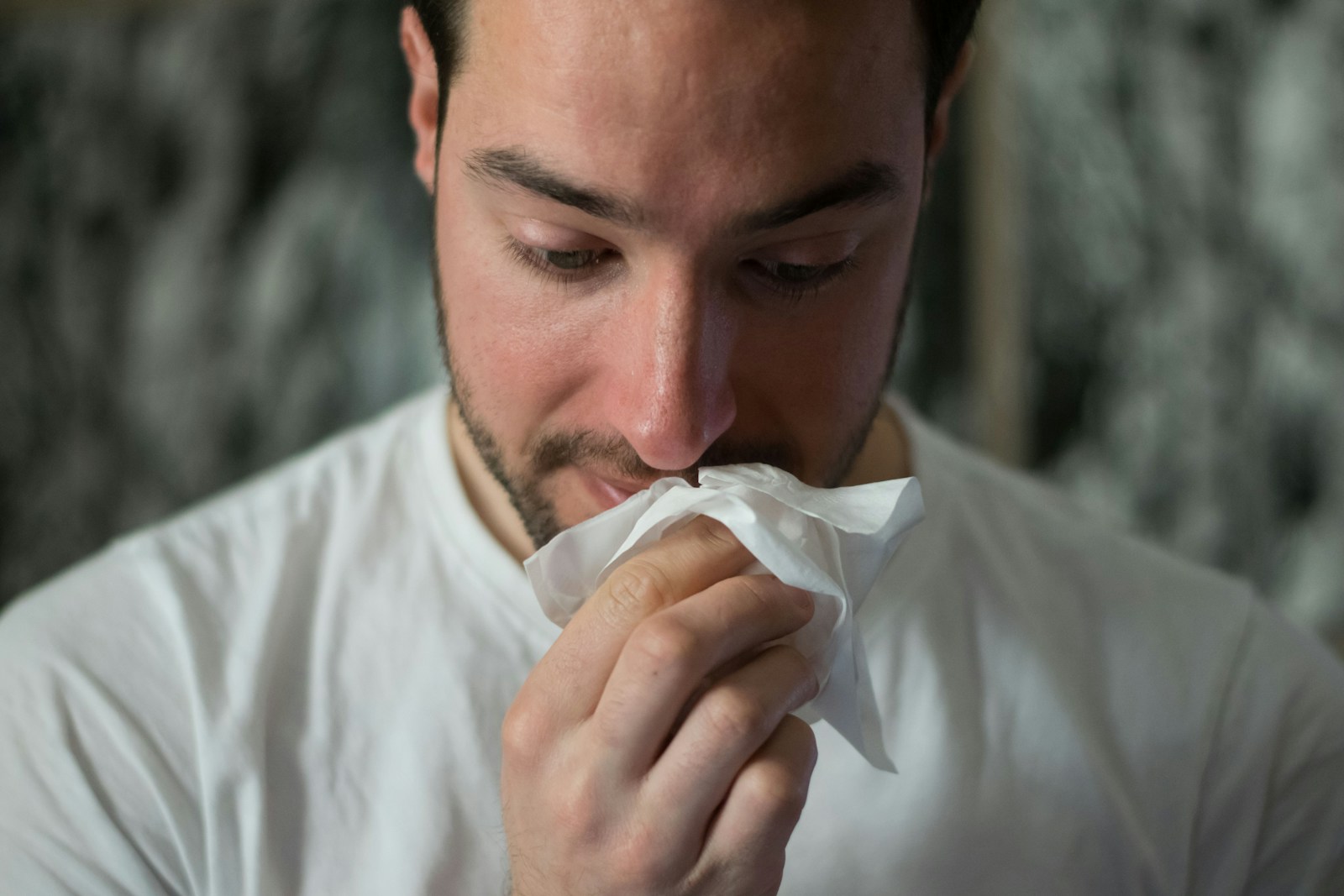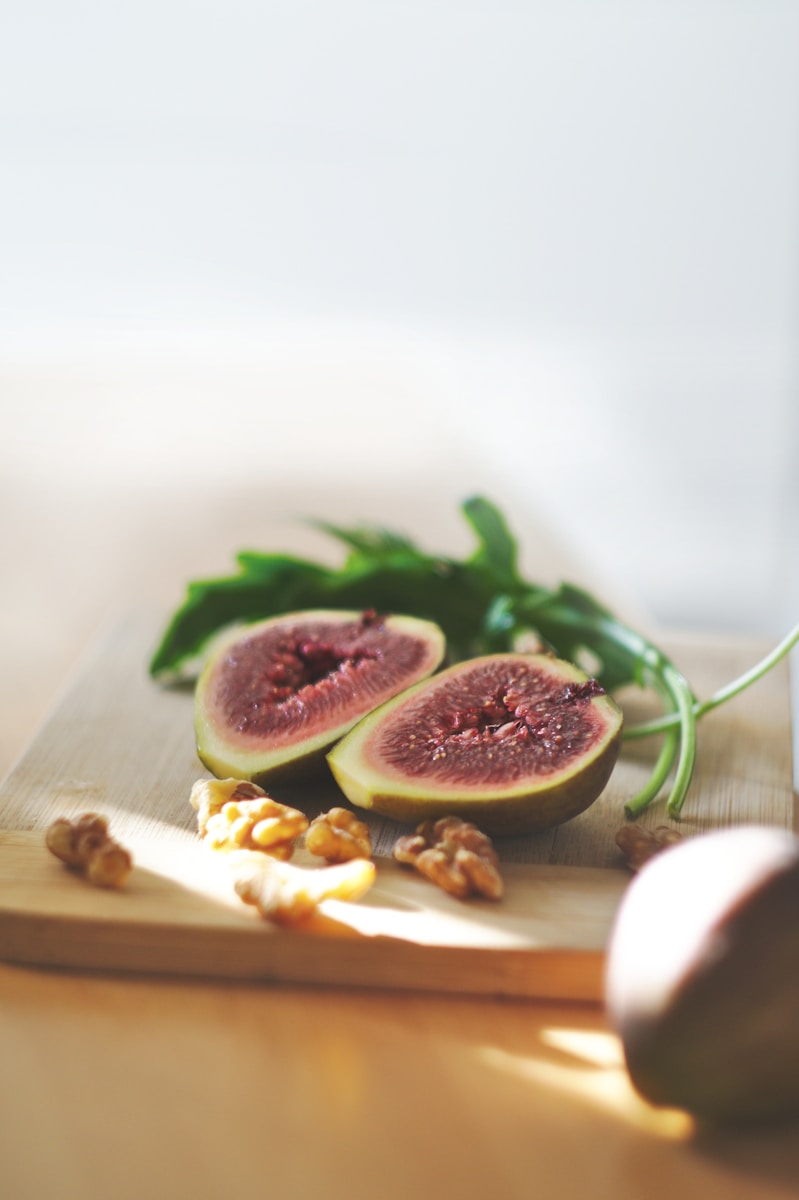How to Get Rid of Cold Sores: A Comprehensive Guide
Understanding Cold Sores and Their Causes
Cold sores, also known as fever blisters, are small, painful blisters that typically appear on or around the lips. They are caused by the herpes simplex virus (HSV), specifically the HSV-1 strain. The virus is highly contagious and can be transmitted through direct contact with an infected person or by sharing personal items such as utensils, towels, or lip balm.
Step 1: Minimize Outbreak Triggers
The first step in getting rid of cold sores is to minimize the triggers that can cause outbreaks. These triggers can vary from person to person, but some common ones include stress, fatigue, exposure to sunlight, hormonal changes, and a weakened immune system. By identifying and avoiding these triggers, you can significantly reduce the chances of future outbreaks.
Step 2: Apply Over-the-Counter Creams and Ointments
Over-the-counter (OTC) creams and ointments specifically designed for cold sores can help in reducing their duration and easing discomfort. These products usually contain ingredients like docosanol, benzocaine, or lidocaine, which can provide temporary relief from pain and itching. Apply the cream or ointment as soon as you notice the first signs of a cold sore, such as tingling or burning sensations.
Step 3: Keep the Affected Area Clean and Moisturized
Maintaining good hygiene is crucial when dealing with cold sores. Gently wash the affected area with mild soap and warm water to keep it clean. Avoid touching or picking at the blister to prevent further infection or scarring. After washing, apply a moisturizing lip balm or petroleum jelly to keep the area moisturized. This helps in preventing the formation of a dry crust and promotes faster healing.
Step 4: Use Cold Compresses for Pain Relief
Cold compresses can provide temporary relief from pain and swelling associated with cold sores. Simply wrap a few ice cubes in a clean cloth and hold it against the affected area for about 10 minutes. Repeat this process several times a day to alleviate discomfort. Remember to never apply ice directly to the skin, as it can cause ice burns.
Step 5: Try Natural Remedies
Several natural remedies have shown promise in reducing the duration and symptoms of cold sores. These include tea tree oil, lemon balm extract, aloe vera gel, and witch hazel. Apply these remedies directly to the cold sore using a cotton swab. However, it’s important to note that natural remedies may not work for everyone, and it’s always best to consult with a healthcare professional before trying them.
Step 6: Take Antiviral Medications
In severe cases or when cold sores are recurrent, healthcare professionals may prescribe antiviral medications such as acyclovir, valacyclovir, or famciclovir. These medications can help speed up the healing process and reduce the severity of symptoms. It’s essential to follow the prescribed dosage and complete the full course of treatment for optimal results.
Getting rid of cold sores involves a combination of preventive measures and treatment options. By identifying and avoiding triggers, using OTC creams, practicing good hygiene, applying cold compresses, trying natural remedies, and considering antiviral medications, you can effectively manage and minimize the impact of cold sores on your daily life. Remember to consult with a healthcare professional for personalized advice and guidance.
10 Effective Home Remedies for Cold Sores
Cold sores, also known as fever blisters, are caused by the herpes simplex virus. They are common and can be quite uncomfortable, causing pain, itching, and burning sensations. While there is no cure for cold sores, there are several home remedies that can help alleviate symptoms and speed up the healing process. Here are 10 effective home remedies for cold sores:
1. Ice Packs: Applying ice packs to the affected area can help reduce inflammation and soothe the pain. Wrap ice cubes in a clean cloth or towel and hold it against the cold sore for a few minutes.
2. Aloe Vera Gel: Aloe vera has natural anti-inflammatory and soothing properties that can help reduce the discomfort of cold sores. Apply pure aloe vera gel directly to the cold sore several times a day.
3. Lemon Balm Extract: Lemon balm, also known as Melissa officinalis, has antiviral properties that can help fight against the herpes virus. Apply lemon balm extract or a lip balm containing lemon balm regularly to the cold sore for best results.
4. Tea Tree Oil: Tea tree oil has antiviral properties and can help speed up the healing process of cold sores. Dilute tea tree oil with a carrier oil, such as coconut oil, and apply it to the cold sore using a cotton swab.
5. Garlic: Garlic has natural antiviral properties that can help fight against the herpes simplex virus. Crush a garlic clove and apply it directly to the cold sore for a few minutes, then rinse off gently with water.
6. Lysine: Lysine is an essential amino acid that can help prevent the replication of the herpes simplex virus. Take lysine supplements or incorporate lysine-rich foods, such as dairy products, fish, and legumes, into your diet to help prevent cold sores.
7. Petroleum Jelly: Applying petroleum jelly to the cold sore can help keep it moisturized and prevent cracking. This can aid in the healing process and reduce discomfort.
8. Echinacea: Echinacea is an herb known for its immune-boosting properties. Taking echinacea supplements or drinking echinacea tea regularly can help strengthen your immune system and reduce the frequency of cold sore outbreaks.
9. Witch Hazel: Witch hazel has astringent properties that can help dry out the cold sore and promote faster healing. Apply witch hazel to the affected area using a cotton ball or swab.
10. Over-the-Counter Creams: There are several over-the-counter creams available that can help relieve the symptoms of cold sores. Look for creams containing docosanol or benzocaine, which can provide temporary pain relief and promote faster healing.
While these home remedies can help alleviate the symptoms of cold sores, it is important to note that they may not work for everyone. If your cold sores persist or worsen, it is recommended to consult a healthcare professional for further evaluation and treatment. Additionally, to prevent the spread of cold sores, avoid sharing personal items, such as utensils or lip balm, with others during an outbreak.
The Role of Nutrition in Preventing and Treating Cold Sores
The Importance of Nutrition in Cold Sore Prevention and Treatment
Proper nutrition plays a crucial role in maintaining a strong immune system, which is vital for preventing and treating cold sores. Cold sores, also known as fever blisters, are caused by the herpes simplex virus type 1 (HSV-1) and can be triggered by various factors, including stress, fatigue, and a weakened immune system. By incorporating a healthy and balanced diet, you can support your body’s natural defense mechanisms and minimize the frequency and severity of cold sores outbreaks.
1. Boost Your Immune System with Vitamins and Minerals
Eating a diet rich in vitamins and minerals is essential for maintaining a healthy immune system. Vitamin C is particularly important as it promotes the production and activity of immune cells that can help fight off the herpes virus. Foods high in vitamin C include citrus fruits, strawberries, kiwi, and bell peppers. Additionally, vitamin E, vitamin A, and zinc are also beneficial for their immune-boosting properties. Incorporate foods like nuts, seeds, spinach, carrots, and seafood into your diet to ensure an adequate intake of these nutrients.
2. Include Foods High in Lysine
Lysine is an amino acid that has been found to help inhibit the replication of the herpes simplex virus. Increasing your intake of lysine-rich foods can potentially reduce the frequency of cold sore outbreaks. Good sources of lysine include lean meats, dairy products, legumes, and nuts. Try to include these foods in your daily meals to support your body’s defense against HSV-1.
3. Reduce Arginine-Rich Foods
On the other hand, it is also important to minimize the consumption of arginine-rich foods. Arginine is an amino acid that can promote the replication of the herpes virus. Foods high in arginine include chocolate, nuts, seeds, and whole grains. By reducing your intake of these foods, you can create an unfavorable environment for the virus to thrive, decreasing the likelihood of cold sore outbreaks.
4. Stay Hydrated
Proper hydration is essential for overall health, including maintaining a strong immune system. Drinking an adequate amount of water helps to flush out toxins from the body and supports the production of immune cells. Aim to drink at least eight glasses of water per day and avoid excessive consumption of caffeinated and sugary beverages, as they can dehydrate the body.
5. Consider Supplements
In addition to a well-rounded diet, supplements may be beneficial in preventing and treating cold sores. Lysine supplements, for example, can be taken to increase the intake of this amino acid. However, it is important to consult with a healthcare professional before starting any supplements, as they can interact with medications or have side effects.
By following a nutritious diet and adopting a healthy lifestyle, you can strengthen your immune system and reduce the occurrence of cold sores. Remember to prioritize a nutrient-rich diet, stay hydrated, and consider adding supplements under professional guidance. With these strategies, you can take control of cold sore prevention and treatment and improve your overall well-being.
Cold Sore Prevention Tips: What You Need to Know
Introduction
Cold sores, also known as fever blisters, are a common viral infection caused by the herpes simplex virus (HSV). They usually appear as small, fluid-filled blisters on the lips, mouth, or nose and can be painful and unsightly. While there is no cure for cold sores, there are several preventive measures you can take to reduce their frequency and duration. In this article, we will explore some effective cold sore prevention tips that you need to know.
1. Maintain Good Hygiene
Practicing good hygiene is crucial in preventing the spread of cold sores. Avoid sharing personal items such as lip balms, utensils, or towels with others, as this can increase the risk of transmission. Wash your hands regularly with soap and water, especially before touching your face or applying any lip products. Keeping your hands clean can help prevent the introduction of the HSV into your system.
2. Protect Yourself From Sun Exposure
Excessive sun exposure can trigger cold sore outbreaks in some individuals. To minimize the risk, it is essential to protect your lips from the sun’s harmful UV rays. Apply a lip balm or sunscreen with a high SPF (sun protection factor) to your lips before going outside. Additionally, wearing a wide-brimmed hat or using an umbrella can provide extra protection against the sun’s rays.
3. Manage Stress Levels
Stress can weaken the immune system, making you more susceptible to cold sore outbreaks. To prevent cold sores, it is crucial to manage your stress levels effectively. Engage in stress-reducing activities such as yoga, meditation, or deep breathing exercises. Getting enough sleep, maintaining a healthy diet, and engaging in regular physical activity can also help reduce stress and boost your immune system.
4. Avoid Trigger Factors
Identifying and avoiding trigger factors can significantly reduce the occurrence of cold sores. Common trigger factors include exposure to cold weather, a weakened immune system, hormonal changes, and certain foods like chocolate, nuts, and citrus fruits. By avoiding these triggers as much as possible, you can minimize the likelihood of developing cold sores.
5. Use Over-the-Counter Cold Sore Treatments
Over-the-counter (OTC) cold sore treatments can help prevent the progression of an outbreak, especially if applied at the first sign of symptoms. These treatments usually contain antiviral ingredients that work to inhibit the replication of the HSV and promote faster healing. OTC creams, ointments, and patches are readily available at pharmacies and can be effective in preventing cold sore outbreaks.
6. Boost Your Immune System
A strong immune system is essential in fighting off viral infections, including cold sores. Incorporate immune-boosting foods into your diet, such as fruits, vegetables, lean proteins, and whole grains. Stay hydrated and consider taking immune-boosting supplements like vitamin C, vitamin D, and zinc. Maintaining a healthy lifestyle overall can help bolster your immune system and reduce the likelihood of cold sore outbreaks.
While cold sores can be bothersome, taking preventive measures can significantly reduce their occurrence and severity. By maintaining good hygiene, protecting yourself from sun exposure, managing stress levels, avoiding trigger factors, using OTC treatments, and boosting your immune system, you can minimize the frequency and duration of cold sore outbreaks. Remember to consult with a healthcare professional if you have recurrent or severe cold sores for further guidance and treatment options.
Understanding the Different Stages of Cold Sores
READ ALSO: How To Get Water Out Of Ear
The Different Stages of Cold Sores Explained
Cold sores, also known as fever blisters, are painful and unsightly blisters that typically appear around the mouth and lips. They are caused by the herpes simplex virus (HSV-1) and can be quite bothersome. Understanding the different stages of cold sores can help you effectively manage and treat them. So, let’s take a closer look at each stage.
Stage 1: The Tingling Sensation
The first sign of a cold sore is usually a tingling or burning sensation around the mouth. This stage is known as the prodrome stage and can last anywhere from a few hours to a day or two. During this stage, the virus is starting to replicate and travel to the surface of the skin.
Stage 2: The Development of Blister
After the initial tingling, small fluid-filled blisters start to form. These blisters are often red and painful. They can appear as a single blister or in clusters. This stage is known as the vesicular stage and usually lasts for a couple of days.
Stage 3: The Rupture and Ulceration
As the blisters continue to develop, they may burst open, releasing the fluid inside. This rupture can be quite painful and can lead to the formation of an ulcer. During this stage, the cold sore is highly contagious and can easily spread to other parts of your body or to other people.
Stage 4: The Formation of a Scab
Following the rupture and ulceration stage, a scab forms over the cold sore. This is part of the healing process and usually indicates that the infection is beginning to resolve. It’s important to resist the urge to pick or scratch the scab, as it can delay the healing process and increase the risk of scarring.
Stage 5: The Healing Stage
As the scab gradually falls off, the underlying skin starts to heal. At this point, the cold sore is no longer contagious and the pain and discomfort begin to diminish. Healing can take anywhere from a few days to a couple of weeks, depending on the individual and the severity of the outbreak.
Tips for Cold Sore Management
While cold sores cannot be cured, there are steps you can take to manage and minimize outbreaks. Here are a few tips:
- Apply over-the-counter creams or ointments: Certain antiviral creams can help reduce the duration and severity of cold sores. These creams are most effective when applied at the first sign of a cold sore.
- Avoid triggers: Stress, fatigue, excessive sun exposure, and certain foods can trigger cold sore outbreaks. Identify your triggers and take steps to avoid or minimize them.
- Maintain good hygiene: Wash your hands frequently, especially after touching a cold sore. Avoid sharing personal items such as utensils, towels, and lip balm to prevent spreading the virus.
- Protect your lips: Apply a lip balm with SPF to protect your lips from sun damage. Sun exposure can trigger cold sore outbreaks, so it’s important to keep your lips protected.
By understanding the different stages of cold sores and following these management tips, you can effectively deal with outbreaks and minimize their impact on your daily life. Remember, if you experience frequent or severe cold sore outbreaks, it’s best to consult a healthcare professional for personalized advice and treatment options.
Conclusion
To effectively combat and manage cold sores, it is important to have a comprehensive understanding of the various aspects associated with this condition. This article has provided a detailed guide on how to get rid of cold sores, including practical home remedies, the role of nutrition in prevention and treatment, tips for cold sore prevention, and an understanding of the different stages of cold sores.
When it comes to managing cold sores, natural remedies can be a game-changer. The ten effective home remedies discussed in this article offer safe and practical ways to alleviate symptoms, speed up healing, and reduce the frequency of outbreaks. From utilizing ice packs and applying aloe vera gel to using lemon balm and tea tree oil, these remedies can provide soothing relief and help combat the virus responsible for cold sores.
While home remedies play a significant role, it is equally important to recognize the role nutrition plays in preventing and treating cold sores. foods rich in lysine, zinc, vitamin C, and bioflavonoids into your diet can strengthen the immune system, minimize the duration and severity of outbreaks, and promote faster healing. By emphasizing a nourishing and balanced diet, you are arming your body with the necessary tools to combat the herpes simplex virus and reduce the likelihood of cold sore recurrences.
Prevention is key when it comes to cold sores. By implementing a few essential tips, you can significantly minimize the risk of outbreaks. Maintaining good hygiene, avoiding direct contact with infected individuals, protecting your lips from excessive sun exposure, and managing stress levels are critical preventative measures. Furthermore, consistently practicing these habits can bolster your immunity and help keep the herpes simplex virus at bay.
Understanding the different stages of cold sores is vital in effectively managing this condition. From the initial tingling and itching stage to the blister formation and eventual scabbing, recognizing the signs and symptoms allows for timely intervention. By initiating appropriate treatment methods at the earliest stages, such as applying antiviral creams, taking oral medication, or using over-the-counter treatments, you increase the likelihood of a quicker healing process.
By adopting a holistic approach to cold sore management, you can effectively reduce the severity and occurrence of outbreaks, while also promoting faster healing. natural remedies, paying attention to your diet and nutrition, following preventative measures, and understanding the different stages of cold sores are all crucial elements in this process. With the knowledge and tools provided in this article, you can take control of your cold sore management and minimize the impact that this common condition has on your daily life.
Originally posted 2024-02-03 15:53:26.



